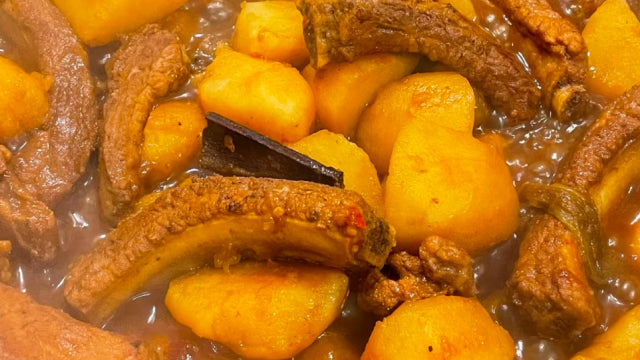Every winter season, thousands of visitors come from the south of China to Harbin, the capital of Heilongjiang Province and site of the world-famous Ice and Snow Festival. It is the first time for most people to see subzero temperature, frozen rivers, and the otherworldly scenery of snow-covered landscapes.

But lately, these visitors have picked up a new moniker among locals in Harbin: "little potatoes" (南方小土豆). It is an informal, good-natured way of describing southern travelers all bundled up against the cold — a cultural meme that is both warm and funny in China's northeast.

How the “Little Potato” Nickname Started
1. Fluffy Winter Clothes
Southerners visiting Harbin condition themselves for the cold as if heading to the Arctic. Picture bulky padded coats, pom-pom hats, scarves, mittens, and stacks of insulation — usually pale or pastel hues. On the white backdrop, these fleshy, fuzzy shapes resemble adorable little potatoes in the snow. Native Harbiners caught on, teased, and soon the name stuck.
2. North-South Stereotypes
Then there is this general stereotype: southerners are "shorter" (on average) than northerners (but, naturally, individual variation is gigantic). Combined with the puffed jackets, it makes the "little" in "little potato" credible in local memes.

3. Social Media Explosion
When videos and photos of bundled-up southern travelers began appearing on Douyin (TikTok's Chinese sister app) and Xiaohongshu (RED), the nickname became out of control. Videos of "southern little potatoes" slipping on ice, sipping frozen pear juice, or pushing into scalding bathhouses were instant memes. Harbin's tourism boards even joined in, using the trend in their winter ad campaigns.

What the Nickname Really Means
For the most part, “little potato” is a term of endearment. Locals use it warmly, as if saying, “You came all this way into our frozen world — we’ll take care of you.”

To help enforce that attitude, Harbin has opened up "warm stations" in tourist areas, offered free hot drinks, and dispensed little comforts to acclimate people to the extremely cold weather. In a way, to be called a "little potato" is to be part of the winter hospitality culture of Harbin so deeply embedded.
Of course, not everyone likes the term. Some southerners take it as exaggerating differences or making them seem out of place.
Potatoes in Harbin: From Nickname to Plate
The "little potato" nickname is all the more fitting when you realize that potatoes are a beloved staple food during Harbin's winter months. In cold northeastern China, potatoes are practical, hardy, and nourishing — perfect for surviving long winters. They consume them in a variety of ways: crunchy fried potato cakes purchased on street corners, spicy shredded potatoes served in family restaurants, and braised potatoes simmered slowly with beef or mutton. Sliced potatoes soak in flavorful broth in hotpot restaurants, and in bakeries they even have potato-filled buns and pastries. For travelers, the experience of eating these homely but hearty foods is another enticement to being a "little potato" — it's both a loving term of endearment and a marker of Harbin's down-to-earth, bountiful food culture.

From Travel Memes to Culture Experience
For overseas visitors, the "little potato" phenomenon reveals a lot about modern-day Chinese travel culture.
-
The nickname shows how social media + travel change local minds. Due to one trending video or one trending post, a nickname is a brand. And then actually, people organize travel just because of it.
-
Harbin officials are very self-conscious about this nickname. They've incorporated it into the appeal. To show: special "warm stations," bathhouse nights, hotel staff helping people who clearly didn't ready themselves for -20°C, holiday promotions aimed at southerners.
-
It provides insight into regional contrasts. For southerners, -20°C is unimaginable; for northerners, it’s normal winter life. The nickname bridges that gap with humor rather than division.
Experience Harbin Winter with Bridge to Locals
Harbin's nickname craze is not social media frenzy — it's a glimpse of how residents interact with visitors in extreme weather. To get immersed, Bridge to Locals offers ways to get involved:
-
Join Harbin’s Ice and Snow Festival, Siberian Tiger Park, and frozen Songhua River, with local context behind the sights.
-
Warm up in traditional bathhouses and food stalls where “little potatoes” and locals mix over hotpot and frozen pears.
-
Learn about northeastern culture and hospitality, from Russian-influenced streets to local winter traditions.

With Bridge to Locals, you won’t just be a “little potato” in the snow — you’ll be part of Harbin’s winter story.
Author:
Selene Zhang
Selene Zhang is an experimental researcher and a passionate creator deeply immersed in ACG culture. On bridge to locals, she shares fascinating places, interesting cultural she discovers in cities—bringing local culture to life for curious readers and fellow travelers.








Leave a comment
This site is protected by hCaptcha and the hCaptcha Privacy Policy and Terms of Service apply.